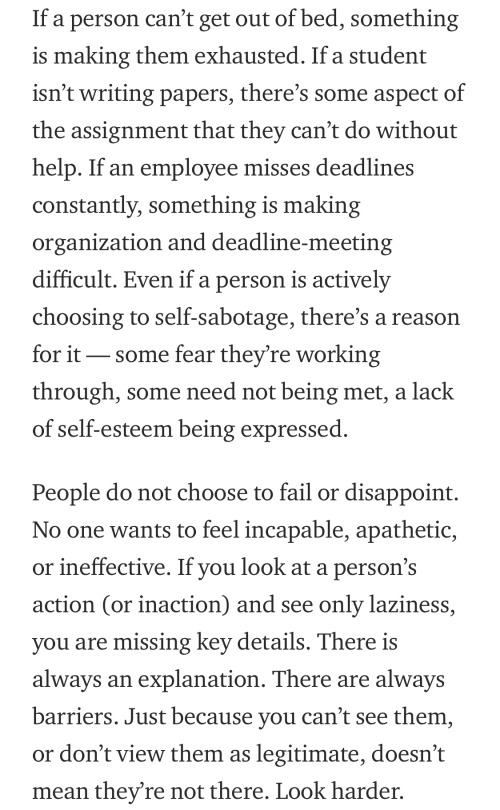Hey, Y'all! I Got Several Questions On One Of My Posts, Asking How I Study For The LSAT. One Of The Best

Hey, y'all! I got several questions on one of my posts, asking how I study for the LSAT. One of the best questions came from @procrastinatingculture. I won't purport to be an expert, but I have studied the LSAT for a few months now. I get consistently good scores with the following method. Of course, this is just my opinion. There is no single way to learn it best.
Familarize yourself with the sections, especially if you haven't seen the test before. Learn what each section demands from you and what skill set it is trying to test. For this task, I recommend Mike Kim's The LSAT Trainer. The book is really good for getting inside the mind of the test maker. It is my favorite prep book, but not the only one I have. It is notoriously weak about teaching logic games, which I'll talk about in a sec.
Take a practice test cold. Before you dive into hardcore studying, get your hands on a practice exam and take it. Keep yourself to the standard time limits, and don't worry if you can't answer all the questions on time. The LSAT is tricky to time, and learning to complete it is part of the journey. After the test, grade yourself. Note any sections that gave you trouble. Also note any question types that you struggled with.
Study logic games. Once you complete your practice test, you will probably find that you have aptitude for most parts of it. Often times, people who think they would be a good lawyer are correct about where their strengths lie. This is not the case with the logic games. The games are the least intuitive part of the test. They require a type of thinking (formal logic) that we do not employ in regular life or school work. Be prepared to dedicate a significant portion of time to logic games. To study logic games, I use Khan Academy's free LSAT prep course and Kaplan's Logic Games Unlocked. Kaplan is pretty controversial, but it works for me. Of course, there are plenty of books for different types of learners.
Practice and assess. Once you have the practice book of your choice, follow the drills there in. Once again, I recommend Mike Kim's book. It is particularly good for self-motivated students, who aren't seeking in person instruction. You should practice several hours per week for at least a month. Assess yourself periodically with a full practice test. You can purchase individual practice tests from Kaplan. I would recommend having at least 3. It is fine to reuse them.
Practice with the time. One of the toughest parts of the LSAT is the timing. Except for the very beginning of your studies, always time yourself. For individual practice questions, you can go over time. However, make sure you are always getting faster. Another reason I like Kim's book is the time suggestions it has.
Perfect practice makes perfect. After each practice, note your strengths and weaknesses. You will not improve quickly without self-evaluation. The Kim book and several others have self-evaluations throughout. Do not skip over them. You will get better through thoughtful practice, not through the raw amount of your practice.
Anyway, that's all I have to say. As I mentioned, this is just what worked for me. There's no perfect way to go about it, but I hope this helped someone.
More Posts from Goldieslearning and Others
i must not miss class. missing class is the mind-killer. missing class is the little-death that brings total obliteration. i will face my lecture. i will permit it to pass over me and through me. and when it has gone past i will turn the inner eye to see its path. where the class has gone there will be nothing. only i will remain.




this is how i feel about the new jupiter photos btw
cool stuff available on youtube
archaeology related and not really (just things I watch while knitting = you can learn something but it shouldn’t bore you to death)
Irving Finkel:
The First Ghost Stories - ancient Mesopotamian beliefs
The Ark Before Noah: A Great Adventure - story of one really exciting cuneiform tablet and bearded guy who make reconstructing the ark possible
Short story of deciphering the cuneiform writing
How to write cuneiform - (or short video that shows you that you really couldn’t do that)
Genevieve von Petzinger ‘s TED talk about 32 symbols found in caves all over Europe
Museum Tour: Ötzi the Iceman - 3D printing a replica of Ötzi, what did he eat, what did he carry, etc.
A Neanderthal Perspective on Human Origins - lecture by Svante Pääbo, who’s worked on neanderthal genome
History of fashion and whatever Karolina Żebrowska is up to these days
Ask a Mortician - everything you want to know about death, iconic corpses, flying corpses, well, a lot of corpses in general
Art history with Waldemar Januszczak


met a friend for coffee and got some epidemiology textbook reading done :)
ilove people who work at front desks of things. i can walk into a building and go to the desk and i ask how do i do this thing. and then they just fucking tell me !!!!
i love you space i love you moons i love you solar/lunar eclipses i love you gas giants i love you pluto i love you asteroid belts i love you planet that rains molten glass i love you supernovas i love you comets and meteor showers i love you nebulas i love you constellations i love you infinity
“If man could be crossed with a cat, it would improve man but deteriorate the cat.”
- mark twain on catboys
-
 4sidedtrianglz liked this · 7 months ago
4sidedtrianglz liked this · 7 months ago -
 ashli-o-on-a-roll reblogged this · 1 year ago
ashli-o-on-a-roll reblogged this · 1 year ago -
 ashli-o-on-a-roll liked this · 1 year ago
ashli-o-on-a-roll liked this · 1 year ago -
 midtowns-second liked this · 2 years ago
midtowns-second liked this · 2 years ago -
 collectivecoma liked this · 2 years ago
collectivecoma liked this · 2 years ago -
 theelovergirl liked this · 2 years ago
theelovergirl liked this · 2 years ago -
 goldieslearning reblogged this · 3 years ago
goldieslearning reblogged this · 3 years ago -
 dutiful-stranger reblogged this · 3 years ago
dutiful-stranger reblogged this · 3 years ago -
 dutiful-stranger liked this · 3 years ago
dutiful-stranger liked this · 3 years ago -
 booksnramen liked this · 3 years ago
booksnramen liked this · 3 years ago -
 captainameridyke liked this · 3 years ago
captainameridyke liked this · 3 years ago -
 causeyoumakemefeellikeee liked this · 3 years ago
causeyoumakemefeellikeee liked this · 3 years ago -
 soldierstark reblogged this · 3 years ago
soldierstark reblogged this · 3 years ago -
 law-psychsoc-student reblogged this · 3 years ago
law-psychsoc-student reblogged this · 3 years ago -
 dum-vita-vivamus liked this · 3 years ago
dum-vita-vivamus liked this · 3 years ago -
 thekhanartist liked this · 3 years ago
thekhanartist liked this · 3 years ago -
 sleepy-libra liked this · 3 years ago
sleepy-libra liked this · 3 years ago -
 keebree liked this · 3 years ago
keebree liked this · 3 years ago -
 stopisastudy reblogged this · 4 years ago
stopisastudy reblogged this · 4 years ago -
 littlemuric liked this · 4 years ago
littlemuric liked this · 4 years ago -
 ambbby liked this · 4 years ago
ambbby liked this · 4 years ago -
 unapologeticallyxx liked this · 4 years ago
unapologeticallyxx liked this · 4 years ago -
 sweet-papillon liked this · 4 years ago
sweet-papillon liked this · 4 years ago -
 aeviriiix liked this · 4 years ago
aeviriiix liked this · 4 years ago -
 sunshine-and-berries reblogged this · 4 years ago
sunshine-and-berries reblogged this · 4 years ago -
 sunshine-and-berries liked this · 4 years ago
sunshine-and-berries liked this · 4 years ago -
 andshestillreads reblogged this · 4 years ago
andshestillreads reblogged this · 4 years ago -
 andshestillreads liked this · 4 years ago
andshestillreads liked this · 4 years ago -
 vnsmiles liked this · 4 years ago
vnsmiles liked this · 4 years ago -
 growingphantom liked this · 4 years ago
growingphantom liked this · 4 years ago -
 demonprosecutor liked this · 4 years ago
demonprosecutor liked this · 4 years ago -
 strawberryblog-blog2 liked this · 4 years ago
strawberryblog-blog2 liked this · 4 years ago -
 chxrryglossed liked this · 4 years ago
chxrryglossed liked this · 4 years ago -
 rustic-cafe reblogged this · 4 years ago
rustic-cafe reblogged this · 4 years ago -
 rustic-cafe liked this · 4 years ago
rustic-cafe liked this · 4 years ago -
 r0-bartics liked this · 4 years ago
r0-bartics liked this · 4 years ago -
 prin2non liked this · 4 years ago
prin2non liked this · 4 years ago -
 hauntafterdark liked this · 4 years ago
hauntafterdark liked this · 4 years ago

